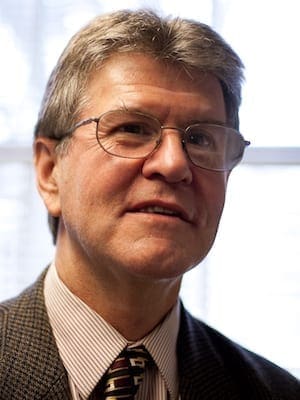Does the Bible speak? If so, how?
An oft-told tale of the Spanish conquest of the Americas tells of the Inca ruler Atahualpa.
When he met the conquistadors in 1532, some Catholic priests reputedly gave him a Bible, telling him it contained the word of God.
Atahualpa put the book to his ear, but hearing nothing, he threw it to the floor in disgust and bafflement that it would not talk to him.
The perceived insult to Christianity helped escalate the ensuing violence between the two sides.
That story was in my mind as I read a recent book review, and some words from it have been nagging at me.
Some weeks ago, a piece in the New York Times Book Review cited a debate between atheist Sam Harris and liberal reformist Muslim Maajid Nawaz.
According to the reviewer, “Harris tells Nawaz that to reform Islamic practices one must ‘pretend’ that ‘jihad is just an inner spiritual struggle, whereas it’s primarily a doctrine of holy war.’
Nawaz counters, ‘Religion doesn’t inherently speak for itself’ because ‘no scripture, no book, no piece of writing has its own voice.’ Human interpretation is everything.”
Nawaz is absolutely not denying that readers can, if they choose, find in the Quran doctrines of armed struggle in God’s name; or if they want to do so, they can find ideas of internal mystical seeking.
The text can be read either way, but it is the readers who make the difference. Nawaz personally devotes himself to combating Islamist extremism and jihadism.
That point about human interpretation obviously appeals to me, as I have written about the bloody and even genocidal passages of the Bible, such as the Hebrew conquest of Canaan.
In some periods, such texts carry heavy weight and influence; in others they are basically ignored. Readership is all.
Frankly, I cannot imagine a text that is so explicit that someone, somewhere, cannot read it in some way other than what most people would think is its starkly obvious sense.
Human beings are very good at reading into a text what they want to get out of it. We see things not as they are, but as we are.
I don’t want to get into a discussion about the violent traditions of any particular faith here. But what do people think about that statement: “no scripture, no book, no piece of writing has its own voice.”
Conservative Christians often say that the Bible speaks, but as Atahualpa found, the book itself does not literally speak unless and until it is read by and through human voices and human interpreters.
Are we to assume that the truth of the book is so obvious and undeniable to any fair-minded and rational reader that only one voice can and will emerge from it? Or that God will inevitably and infallibly guide the faithful reader to truth?
Put another way, how much belief do I have to put into the enterprise before I can receive and hear the “speaking,” the Bible’s voice. How much cultural reference?
I recently saw an ad for a Bible that said something along the lines of this: “You read it, then it reads you.” That’s a great phrase and a fascinating idea, but it demands a lot of expounding.
For the sake of argument, assume that the Christian priests who met Atahualpa had translated some biblical passages into the king’s native tongue, impeccably rendered in colloquial and comprehensible ways, but obviously depicting a thoroughly unfamiliar cultural universe and worldview.
Would Atahualpa have “heard the Bible’s voice” in those words, any more than by merely putting the physical book to his ear?
Can we also assume that the voices that early believers heard from the Bible were the only ones available, or does the voice contain messages for later generations, for generations yet unborn?
Martin Luther famously declared that “The Bible is alive, it speaks to me; it has feet, it runs after me; it has hands, it lays hold of me.”
Clearly, that’s a potent metaphor. But where and how, exactly, does the Bible speak?
So does the Bible have its own voice? Does it have a voice outside the church and the Christian community?
How far does hearing that voice depend on the traditions of particular reading communities – which, of course, vary according to place and time, depending on the cultures in which those communities operate?
All in all, some knotty questions.
 Philip Jenkins is distinguished professor of history at Baylor University in Waco, Texas, and serves as co-director for the program on historical studies of religion in the Institute for Studies of Religion. He is the author of numerous books, including “The Great and Holy War: How WWI Became a Religious Crusade.” A version of this article first appeared on The Anxious Bench, where he blogs regularly, and is used with permission.
Philip Jenkins is distinguished professor of history at Baylor University in Waco, Texas, and serves as co-director for the program on historical studies of religion in the Institute for Studies of Religion. He is the author of numerous books, including “The Great and Holy War: How WWI Became a Religious Crusade.” A version of this article first appeared on The Anxious Bench, where he blogs regularly, and is used with permission.
Philip Jenkins is distinguished professor of history at Baylor University in Waco, Texas, and serves as co-director for the program on historical studies of religion in the Institute for Studies of Religion. He is the author of numerous books, including “The Great and Holy War: How WWI Became a Religious Crusade.”

